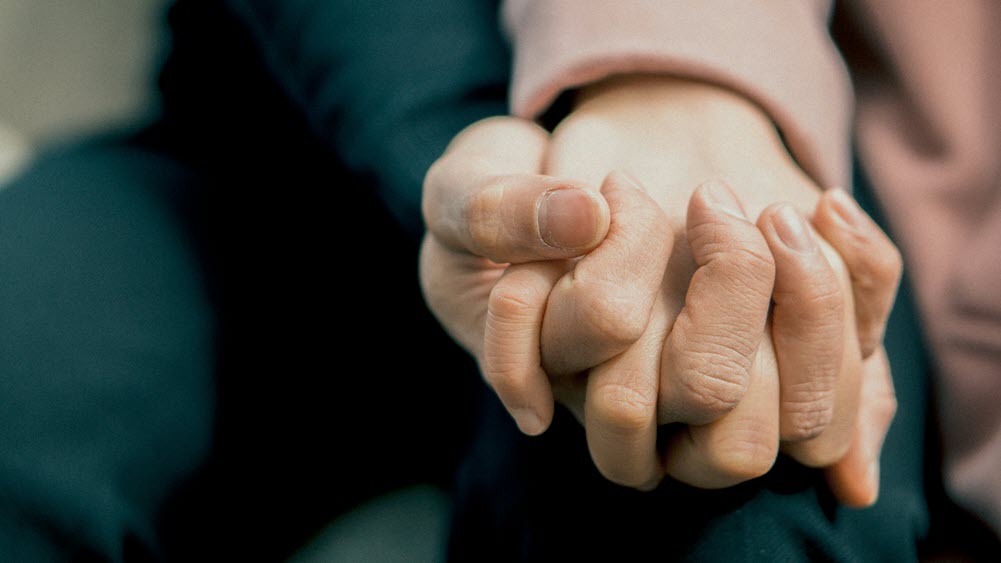
Conversations about caregiver self-care often revolve around simple things, like bubble baths, time on your own to read a book, healthy food, and even just visiting the doctor’s office. Yet, many caregivers need more than this.
Much of the time, the simple things just won’t cut it.
This is particularly true if you’re burned out and overwhelmed.
This is why we’re talking about caregiver retreats. They’re an oft-overlooked form of self-care that hits multiple needs at once.
You can probably guess the concept by the name alone. We’re often talking about two- or three-day events, where you stay at least one night, perhaps in a cabin or a hotel room.
The events aim to bring together caregivers from the local area, providing a chance for connection and respite. Some events focus on providing caregiver education, while others have a greater emphasis on relaxation instead. Whatever the focus, these events give you time to be around people in a similar situation to you.
The Benefits of Caregiver Retreats

Respite in a Different Environment
The term respite simply refers to a break. It can be a break of any length, but we’re normally talking about at least 24 hours.
The goal is to give you time to step away from caregiving and actually relax. Breaks of just an hour or two don’t have this effect, as it takes your body and mind a while to calm down.
Going beyond 24 hours is even more powerful and many caregiver retreats do just this.
You’re also in an entirely different environment.
Let’s face it – even if the care recipient is staying with someone else for a few days, it’s hard to switch off at home. Too many things need to be done and you might find yourself working on extra tasks rather than resting.
Being somewhere else with different people can work wonders.
The Care Recipient Can Stay at Home
Also, because you’re taking respite away from home, the care recipient might not need to move.
This means they can still be in the same place with the same routines, just with someone else taking care of them. Being able to stay at home means fewer disruptions and can improve the whole experience.
This approach means less work and worry for you too. You don’t have to wonder how they’ll cope with a new environment or try to pack so they have everything they need.
The Chance to Form Friendships
Caregiving can be incredibly isolating – partly because people in your life will often pull away. This may be because they don’t have much in common with you anymore or because they can’t cope with the emotions your situation stirs up in them (crazy, but true).
Because of this, you may need to find new friends, ones that understand and connect with your current situation.
Caregiver retreats and caregiver support groups offer the chance to do this. When else do you get to be around many caregivers all at once? Even if you only hit it off with one or two others, that’s more connections than you had before.
You may even be able to continue some of those friends long-distance through phone calls and emails. While other caregivers mightn’t be able to help much with the practical challenges of caregiving (they’re probably overwhelmed in their own role too), they can provide moral support.
Sometimes, simply knowing that someone else ‘get it’ can make a huge difference.
You Decrease the Risk of Burnout
A huge benefit of caregiver retreats is a decreased risk of caregiver burnout. The term burnout applies to a state of physical and/or emotional exhaustion, where you are functioning far below your normal capacity – and it’s a serious issue.
Crucially, burnout doesn’t mean you aren’t strong enough.
Almost everyone will experience burnout when they’re pushed to the limit. And caregiving certainly can get you there fast.
It’s easy to feel guilty about this. You might think that you should be stronger or you should be able to cope with more.
This perception often comes from misunderstanding just how much you’re actually coping with. For many, the biggest issue isn’t the individual challenges, but the way they keep coming with little chance to recover between each.
This is why respite is so incredibly important.
Time away gives you the chance to recoup and reset. This keeps you fighting fit, ultimately promoting your health and the health of the person you’re supporting.
The Chance to Learn
Caregiver retreats also allow you to learn.
This will sometimes mean practical skills, like wound dressing or how to safely lift someone. However, many caregiver retreats lean towards caregiver-centered skills instead. As such, you may be learning practices that can help with resilience, often through mindfulness or perhaps therapeutic modalities.
Some caregiver retreats may offer valuable information relating to personal empowerment and strength. Such insights may help you see caregiving from a new perspective and give you more strength for the road ahead.
Infinitely more valuable is what you learn from other caregivers.
This might include new techniques and ideas, or perhaps different mindsets.
For example, another caregiver might tell you how she responds to a challenging behavior – in a way you never imagined before (like the use of humor in dementia care). Or, she might help you to see the care recipient’s point of view in a way you didn’t before.
Regardless of your situation and needs, you’re likely to learn something. That’s the beauty of spending time around people in a similar situation to you.
You Get to Vent

Sometimes people just need to get things off their chest – whether that be about caregiving, difficult siblings, or something else. This often isn’t something you can do with family members or the care recipient.
But, at a caregiver retreat, you may just be able to.
Be sure to check in with others before you do so. Some caregivers won’t have enough leftover energy to be supportive, especially at the start of the retreat. Others may find the idea draining.
Still others may be the reverse, finding the experience cathartic rather than draining. These are the connections you’re looking for. There could also be professionals at the retreat who provide the space for you to share what you feel, including the difficult emotions.
There May Be Funding
Caregiver respite is a recognized need and various organizations provide funding to help caregivers get some much deserved rest. While this funding might not cover the retreat itself, it could easily help with the cost of getting someone to care for your loved one.
Now… as is often the case, finding funding for respite care can be complex. Medicaid and Medicare both support respite care in some situations and states. Other federal programs are relevant too, including the Older Americans Act.
The amount of money available and the eligibility requirements vary considerably from state to state. You’ll need to talk to experts and research local laws to determine what’s an option for you.
You can also get in touch with the provider of a retreat.
Some providers offer sliding scales for caregivers who are struggling or have scholarship-type programs where there is funding to pay for a certain number of attendees.
Risks vs Rewards of Caregiver Retreats

My Personal Experience
I had one respite experience as a caregiver. It wasn’t a caregiver retreat, just a women’s group from a local church having a trip for a couple of days. It was a nightmare to organize things at home so that I could go at all.
I’ll admit, I didn’t enjoy the retreat as much as those around me. I wasn’t able to get past the guilt of not being with my partner or the fear that something would happen while I was away.
And honestly, it could have.
The person taking my place wasn’t as experienced as me and could have become overwhelmed. There could have been a crisis that they couldn’t resolve, one that might have even caused harm.
Yet, even with guilt and fear, the respite was well worth it. I found myself becoming less tense, especially waking up the first morning to realize that there were no sudden needs to attend to. It was nice, for a little, just to think about what I wanted.
Caregiver retreats are even more powerful, as those with you are in a similar situation. This allows you to talk about some of the guilt and find some solace.
And, incidentally, everything was mostly fine when I got back home. My partner was a little more stressed given that I hadn’t been there, but that only made my work more valuable to him, which was honestly a win in itself.
Why Retreats are Worth the Risk
As my experience shows, there are fears and risks associated with going on a retreat.
This is particularly true if you rarely leave your loved one. You may be worried about an accident, that they won’t eat well, or that they’ll be stressed and emotional the entire time.
Honestly – any of these things could happen. They might even all happen.
You should still go.
Truth is, you can’t protect your loved one from aging or disease. You can’t ever make them completely safe. None of us is powerful enough for that.
Even if your loved one is safer with you than anyone else, accidents can still occur.
Not going to a retreat might be even riskier than going.
That sounds crazy, but remember that caregiver burnout is a serious problem. It affects your ability to make good decisions and provide care. Trying to support someone when you’re burned out could easily backfire. You might even cause considerable harm.
What if you’re not burned out yet?
You should still go. In fact, this is the perfect time to go.
Seriously, your goal is to avoid getting burned out. Recovering from burnout is a long and hard journey, especially if you’re still trying to provide care. Putting the brakes on before you hit burnout is easier and lets you get back to full capacity much sooner.
Where to Find Caregiver Retreats
Caregiver retreats are generally held in person, so you may see them advertised locally. You can also search online, using terms like “caregiver retreats near me” or “caregiver retreats in Ohio” (or whatever state you’re in).
You can also check out the Caregiver Retreats section of our National Caregiver Events Directory. This database was compiled by Kapok experts and features a variety of local and online events for caregivers. Users can add their own events too, making this a comprehensive source of information.
Feeling Overwhelmed?
Check out our Caregiving Consulting service for personalized support and guidance.

Leave a Reply